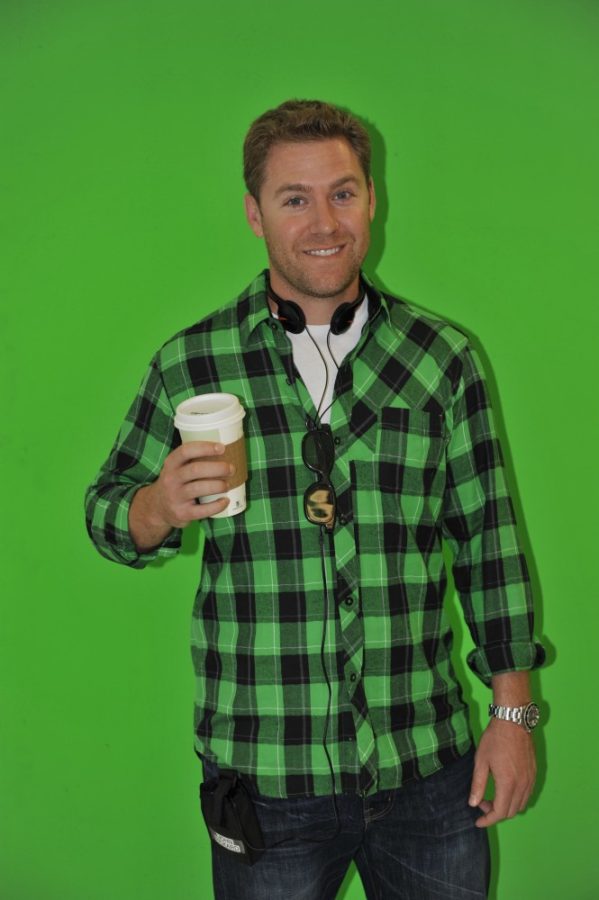The producer of “How to Be Single” is, of all things, recently married. John Rickard, a UA alumnus, married in December while the film was in post-production.
“The movie got made, and I’m no longer single,” Rickard laughed.
“How to Be Single” plays at an advanced screening at the Century 20 El Con theater Wednesday before the film makes its wide release on Friday. I spoke with Rickard about his experience working on the movie and how he got to where he is today.
“How to Be Single” centers on Alice (Dakota Johnson, “Fifty Shades of Grey”), a young woman fresh out of college, and novice to both New York City and the single life. She meets Robin (Rebel Wilson), who shows Alice exactly how much fun NYC nightlife can be, in addition to how fun and important it is to discover your personal identity when given room to bloom. The supporting cast includes Alison Brie, Leslie Mann and Anders Holm.
Of course, Rickard didn’t start off producing major Hollywood films with A-listers. He grew up in Santa Barbara, California, but ended up attending the UA where he graduated in 2001 with a degree in business management.
Even though he wasn’t involved with student film while on campus, Rickard always possessed interest in working with movies.
“I learned a lot by doing, instead of learning about it in school,” Rickard said. “In hindsight, it would have been nice to know a little bit more about the cameras and the process before I stepped onto set.”
The “doing” that Rickard speaks of occurred when he took a semester off from school to be a production assistant on the film “Wonder Boys,” an experience that would set him up post-graduation.
Rickard finished his degree, and through connections he made on set, ended up working for bigwig Hollywood producer Scott Rudin for a year. He then worked as an assistant to Brett Ratner, the director and producer well known for the “Rush Hour” series.
Through these experiences, Rickard became familiar with New Line Cinema. He saw a career opportunity for those who worked under New Line Cinema’s boss Toby Emmerich, and when the chance presented itself, became Emmerich’s assistant. After Rickard worked three years, the reward finally presented itself: a chance to produce.
Rickard served in a producing capacity on the 2010 remake of “A Nightmare on Elm Street,” the “Horrible Bosses” series and “Jack the Giant Slayer,” among others.
To those outside of the film industry—and probably even to some within it—the term producer bears ambiguity. The screenwriter writes, the director directs and the producer … produces? Proof of the position’s importance: producers of a film are the ones that go on stage to accept the award for Best Picture at the Academy Awards. Rickard explained the responsibilities of the role, which finds its origin in the Hollywood days of old.
“The role of the original producer back in like the 30s and 40s with the whole studio system … was to be a buffer between the creative director and the studio, and make sure both sides [were] getting what they need out of the movie; but, primarily, the producer’s job is to protect the whole film,” Rickard said.
Rickard further elaborated on the responsibilities of a producer, “A director gets caught up in the day-to-day of what they’re shooting, whereas a producer can have a little bit of an arm’s length distance … versus the studio, who probably has too high up of a view of it and forgets about what the importance of a scene is. Somehow, you have to find a way to make sure that those lines of communication are open between director and studio, but also not so that it hurts the movie in any sort of way.”
For “How to Be Single,” Rickard found that the film presented its own unique set of producing challenges. For one, German director Christian Ditter, whose second language is English, was directing his first film in the American studio system.
“A lot of it was making sure he was guided down the right path, and knew what to expect and how it works, so he can find his creative vision through the system,” Rickard said. “You want to promote creative environments for the creative people on your set to do what they do best.”
Up next on the docket for Rickard are films “Midnight Sun,” “Fist Fight” and “Rampage,” the latter an adaptation of the old video game series in which a giant gorilla, werewolf and lizard pulverize cities into rubble. Although he has a slate of movies ahead of him and a list of movies behind him, Rickard finds particular excitement in the early screening opportunity for “How to Be Single” among the student community.
“I’m very proud of all the movies I’ve made, I feel like this particular one really nails a different tone of romantic comedy that is going to speak very well to the students of the University of Arizona,” Rickard said. “It’s made for everyone, but at the same time, it will speak to these younger folks … This is an R-rated comedy, true-to-life version of the dating world and what it’s like to be out there now.”
Rickard lives the dream of a true-to-life Hollywood professional, and you can catch his latest film “How to be Single” in wide release starting this Friday.
Follow Alex Guyton on Twitter









